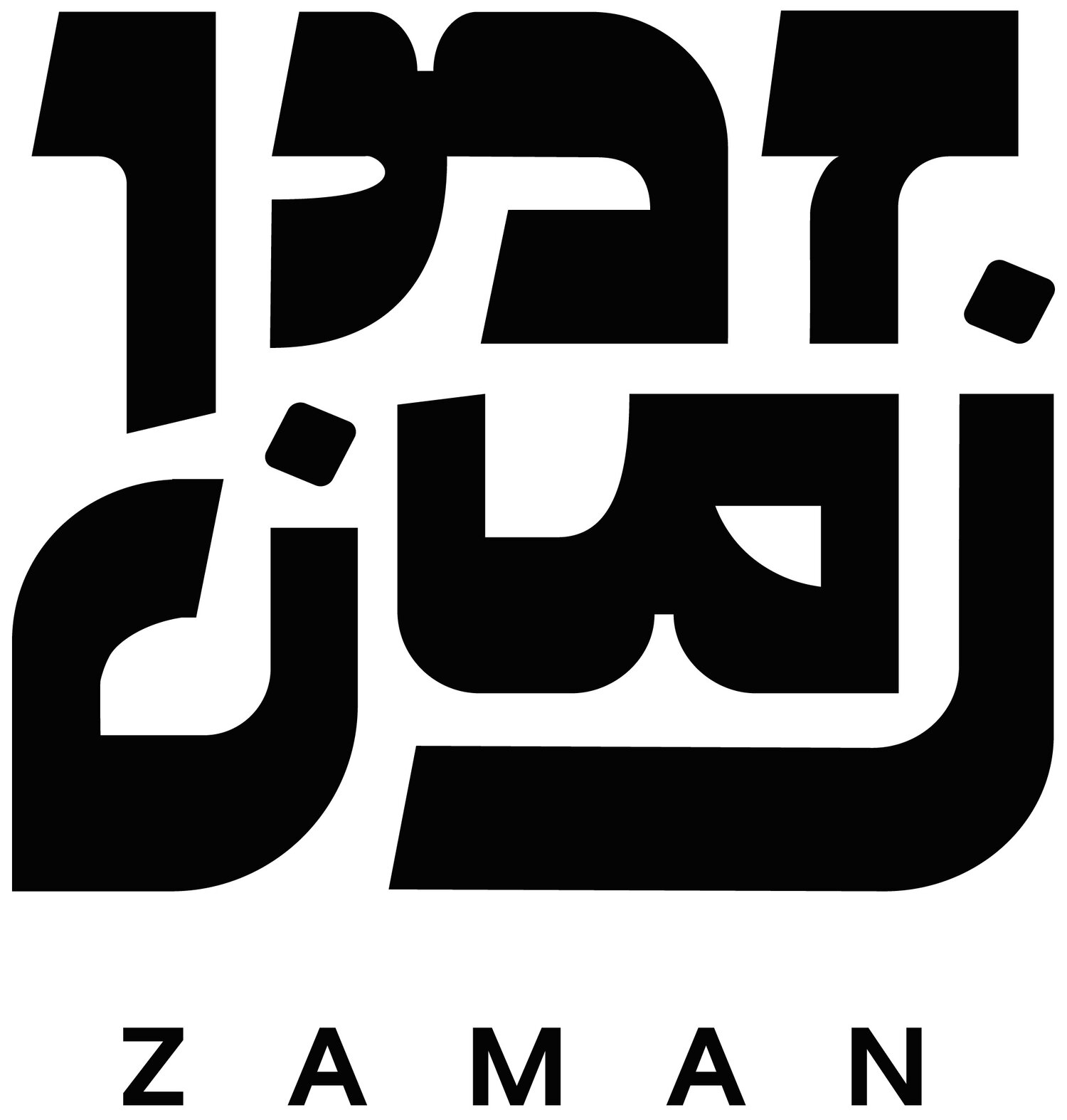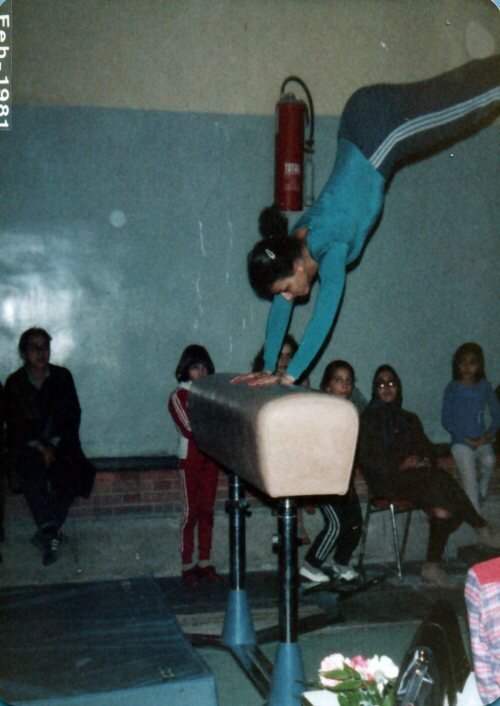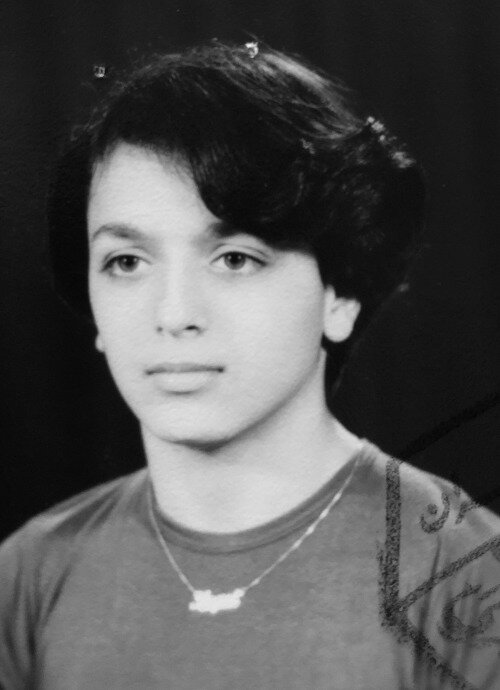Stories of Life as a Jewish Gymnast in Iran
Testimonies by Angel Assil AftalionBefore my mother and her family fled Iran, she spent her years in Tehran as a competitive female gymnast. Her team was the first Iranian gymnastics group to qualify for the Pan-Asian games and they performed for the Shah’s White Revolutionary Ceremony. This collection of photos and recently-collected testimonies explores her experiences as a Jewish competitive athlete tasked with balancing her passion and her identity.
“I started gymnastics when I was in first grade, after making aliyah (immigrating to Israel) from Tehran. A girl in our building was taking gymnastics classes, and after every session she would come back and teach me what she learned. Actually- she would meet me in the miklat (missile shelter) and that’s where she would teach me.”
“My dad was a soldier and an athlete, and it was very important to him that his kids were devoted to a sport, so he signed me up for gymnastics lessons [in Israel]. After we moved back to Tehran about 2 years later, I started to compete on a team at the Amjadyeh Gymnastics Federation.”
“Gymnastics gave me a sense of home. Everyone there had one priority in common; we were very goal oriented. I learned that in order to achieve something real, I would have to spend time, energy, pain… I think it was the first thing that taught me real commitment.”
“There was a couple- a husband and a wife- that worked as janitors in the gym and took care of the club and the bathrooms. They would bring tea for us sometimes… a really sweet couple who were nice to everyone. One time they asked me my name and I told them, ‘Angel Assil’. They asked what kind of name that is, because it didn’t sound like a common Iranian name, and I told them it was Jewish. They just said ‘No no no, that’s not possible. You’re such a nice girl, there’s no way you can be Jewish. We won’t call you that anymore.’ The couple insisted on calling me Fatemeh. They kept telling me, ‘You must be adopted, there’s no way such a nice person could be Jewish. That’s not your name.’Honestly, they were the nicest people otherwise. So I just told them, ‘You can call me whatever you want.’”
“Nine out of ten girls on my team were from very impoverished areas. Their parents were generally minimally educated and had never met a Jewish person in their lives. I would have conversations with them, and they asked me if it’s true that Jews use blood in their matzah and if it’s true that Moses had horns. I was really young but I remember just saying..’I don’t think he had horns?’ They all really were good friends and kind people, but they had parents that were very ignorant about Jews and advised their kids to stay away from us.”
“One time I went over to one of my very good friend Shaheen’s house for tea. When her parents found out that I wasn’t Muslim and I was Jewish, they literally would not touch my teacup. They picked it up with a napkin, so I asked, ‘Are you going to throw that away?’ and her mother said yes, so I just asked to keep it. It was really pretty, so why not? I’m a Jew, what can I say!”
“Shaheen told me later that I was the first Jewish person her mother had ever met.”
“After the Revolution began, they started having us (the girl’s team) only use the gym when the boys were gone. Religious Muslim administrators would come to our practices and have us wear head scarves and long sleeves, even during practice sessions when the boys weren’t around. I thought it was kind of annoying but I knew it would be best to not say too much about it. I just wanted to be able to practice.”
“When we left Iran, I had to leave behind all my friends, everyone I knew. Whatever country we were in waiting to come to the US, I would just go to whatever gymnastics club was around. It gave me a home. My first job in Los Angeles was as a gymnastics teacher—I could barely speak English but I knew that’s what I wanted to do. I memorized the sentence ‘I teach gymnastics. Are you hiring?’ and started calling gyms around the city. With the first one to say yes, I immediately hung up and went there because I didn’t know any more English- I just wanted to show them I could do it.”








